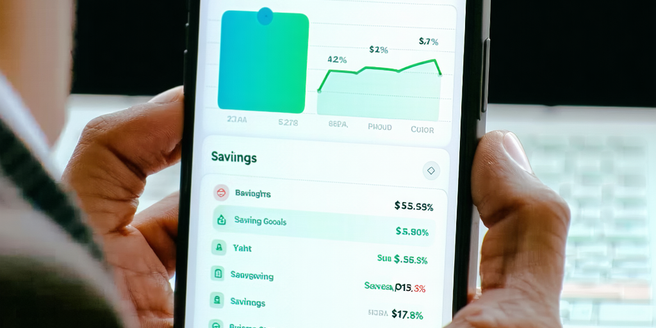What is a Grace Period?
| Feature | Description | Example |
| Definition | Time given to pay off debt without interest | 21-25 days |
| Activation | Starts from billing date | Monthly cycle |
| Eligibility | Depends on issuer terms | On-time payments required |
| Interest Accrual | None during period | 0% interest |
| Grace Expiration | If the balance isn’t paid | Ends after due date |
| Restoration | Occurs upon full payment | Next cycle |
How Grace Periods Work
Grace periods are an integral part of managing credit cards, providing a window of time during which cardholders can pay off their balances without incurring interest charges. Typically, the grace period is the time between the end of a billing cycle and the payment due date. It is crucial for cardholders to keep track of these dates to maximize their financial efficiency. During this time, if the cardholder pays the total amount due, they avoid paying any interest on new purchases made during that billing cycle. However, grace periods do not apply if there is an outstanding balance carried over from the previous cycle. Understanding the specific rules of your card’s grace period can help you make the most of this financial benefit.
Benefits of Using Grace Periods Wisely
Effectively utilizing grace periods can lead to significant financial advantages. For one, paying off your balance in full each month during the grace period allows you to avoid paying interest, ultimately saving money in the long run. It’s important to keep track of your payment deadlines to fully benefit from the grace period. Additionally, understanding the terms and conditions associated with your grace period can help you maximize these benefits. Moreover, disciplined use of grace periods can improve your credit score, as it reflects positively on your credit report, which in turn can qualify you for better interest rates on loans. Furthermore, wise use of grace periods empowers you to manage your budget better, ensuring that you live within your means while taking advantage of credit’s convenience.
Common Misconceptions About Grace Periods
There are several misconceptions about credit card grace periods that can lead to financial pitfalls. A common belief is that grace periods allow for interest-free periods regardless of carried balances from previous months, but this is not true. It is important to carefully read the terms and conditions of your credit card agreement to fully understand how the grace period works. Another misunderstanding is that all types of transactions enjoy a grace period, but often cash advances and balance transfers do not have one. Many also assume that the grace period lasts several months, yet it typically lasts only a few weeks. Understanding these nuances is crucial to avoid unexpected interest charges and financial strain.
How to Maintain Your Grace Period Status
To maintain your grace period status, it is essential to manage your spending wisely and ensure timely payments. Always pay off your credit card balance in full by the due date each month to benefit from the interest-free grace period. Consider revising your budget regularly to accommodate any changes in your financial situation. Setting up automatic payments can ensure you never miss a due date. Regular monitoring of your transaction history can help you avoid overspending and ensure that your balance is manageable. Additionally, familiarize yourself with your credit card issuer’s specific rules regarding the grace period, as they can vary greatly. This vigilance will help preserve the financial benefits associated with having an active grace period.
Comparing Grace Periods Across Different Cards
The terms and conditions regarding grace periods can vary significantly across different credit card issuers. While most cards offer a similar range for grace periods, typically between 21 and 25 days, some issuers may offer shorter or longer periods. It’s crucial to understand these terms before making a choice. Keep in mind that these differences can impact the interest you might incur. To make the most informed decision, compare the grace periods of various cards before applying. Some premium cards might offer enhanced terms, such as longer periods or additional perks if the eligible balance is paid in full. It’s important to read the fine print and understand how differences might affect your cash flow and financial planning.
Impact of Late Payments on Grace Periods
Late payments can have a detrimental effect on your credit card’s grace period. If you miss the payment due date, not only might you incur late fees, but the grace period for new purchases could also be revoked. This means that any subsequent purchases made without a grace period will begin to accrue interest immediately. Moreover, paying your credit card bill on time can help build a positive credit history. Consistent late payments can also impact your credit score negatively, complicating future financial endeavors. It is crucial to understand the terms and conditions of your credit card agreement. To avoid these consequences, set up automatic payments or reminders, ensuring timely payments every month.
Financial Strategies Involving Grace Periods
Strategic use of credit card grace periods can be an excellent financial tool. One effective strategy is syncing your substantial expenses with the beginning of the billing cycle, allowing maximum time to settle the balance without interest. Understanding how these cycles work is crucial for optimizing your financial strategy. Another tactic is using the grace period to budget for large purchases then pay them off by the due date, enhancing cash flow management. By setting reminders for your payment due dates, you can avoid any accidental late payments. Additionally, pairing this strategy with a rewards credit card can maximize benefits, gaining cashback or points without the burden of interest when paid within the grace period.
Frequently Asked Questions About Grace Periods
Consumers often have many questions about grace periods and their implications. A frequent inquiry is whether grace periods apply to cash advances or balance transfers, and generally, they do not. Others wonder if past due balances affect grace periods, and indeed, outstanding balances negate the typical grace period benefits. It’s worth noting that taking advantage of a grace period can lead to significant savings on interest charges. It’s also important to know that grace periods generally apply only when the previous balance is paid in full. Moreover, questions arise regarding changes in grace period terms, usually dictated by issuer policies, which can be subject to change with proper notification. Understanding your credit card agreement can provide clarity on these common questions.
Key Takeaways for Managing Grace Periods
Managing credit card grace periods effectively can offer numerous financial benefits. Always aim to pay your balance in full before the due date to avoid incurring interest and maintain your grace period status. Be aware of your credit card’s specific grace period rules, as terms can vary between issuers. Regularly reviewing your credit card statement can help you stay on track with your payments. It’s also essential to monitor any changes in your credit card terms that could affect your grace period. Utilize financial strategies that align with your billing cycle to maximize cash flow and minimize expenses. Finally, staying informed about your card’s terms and staying on top of payments will ensure that you continue to benefit from the grace period’s interest-free days.



